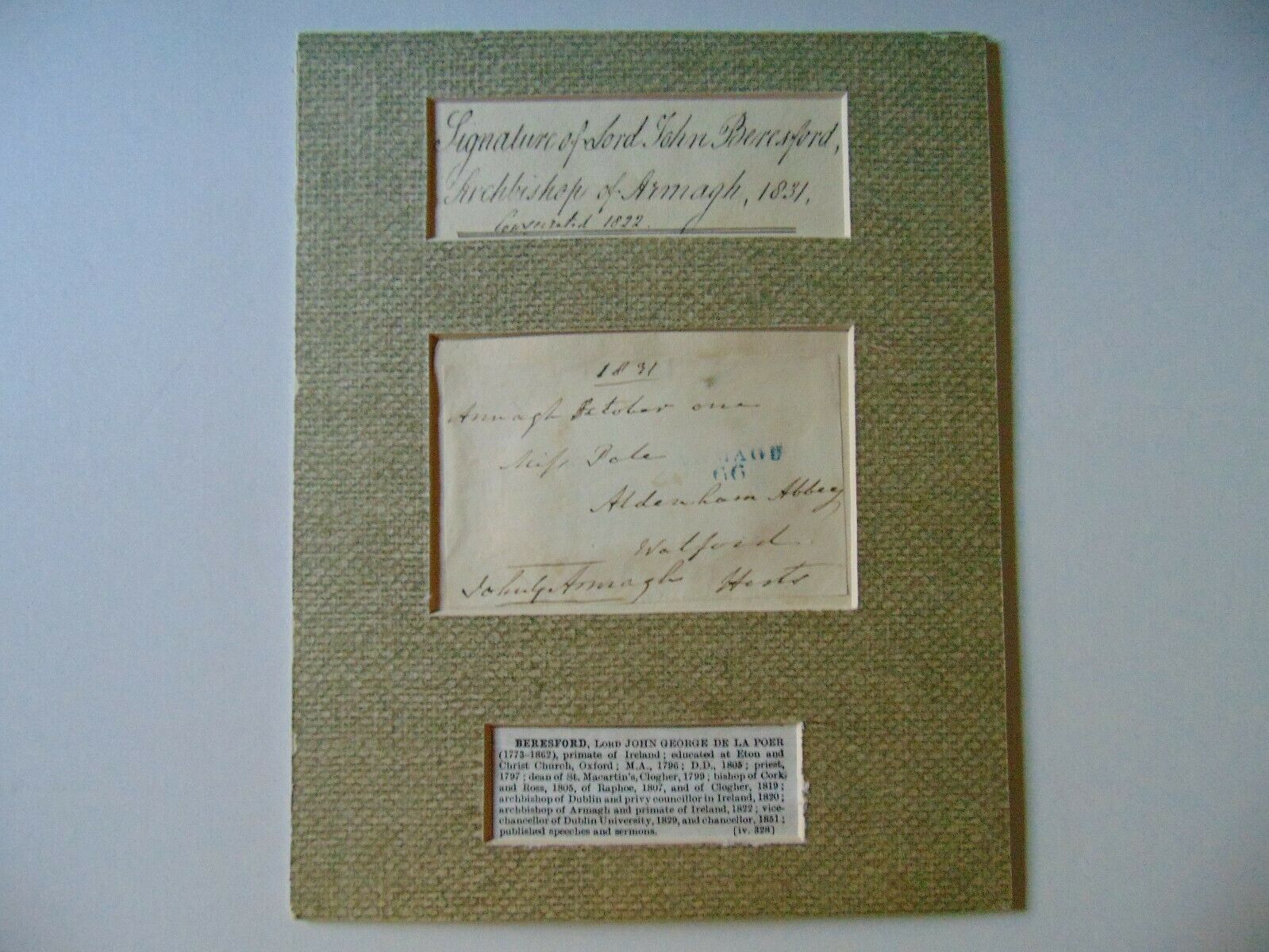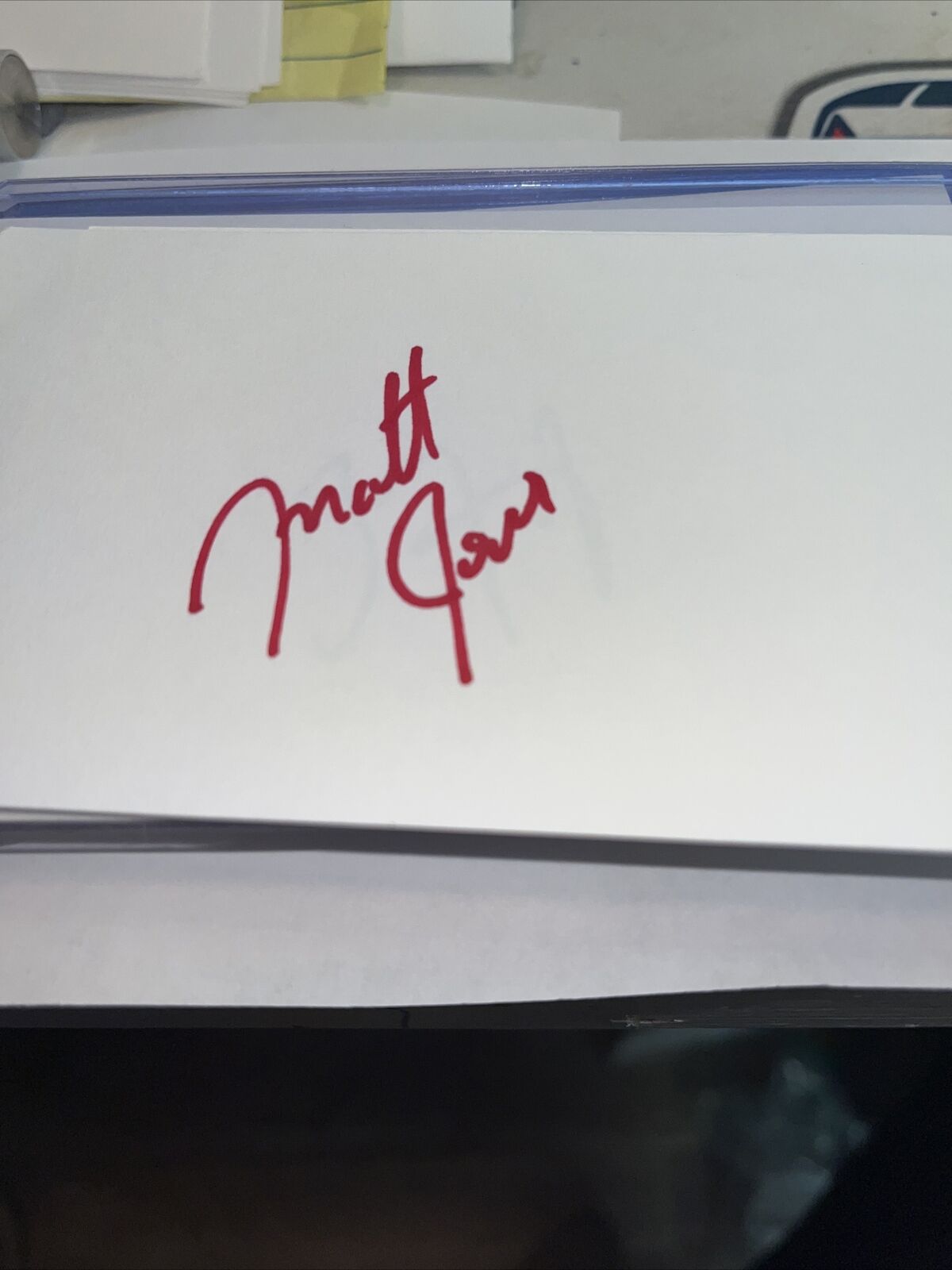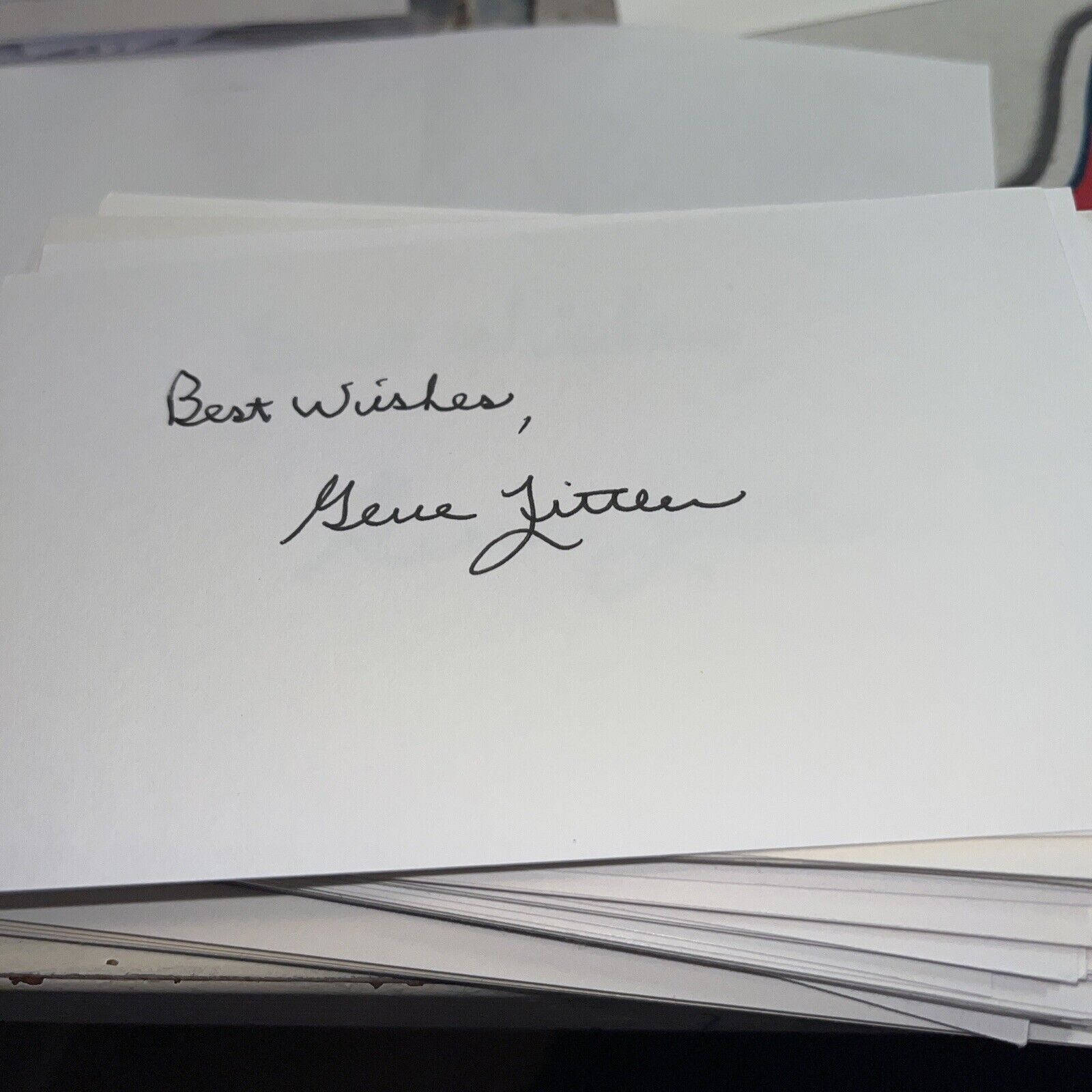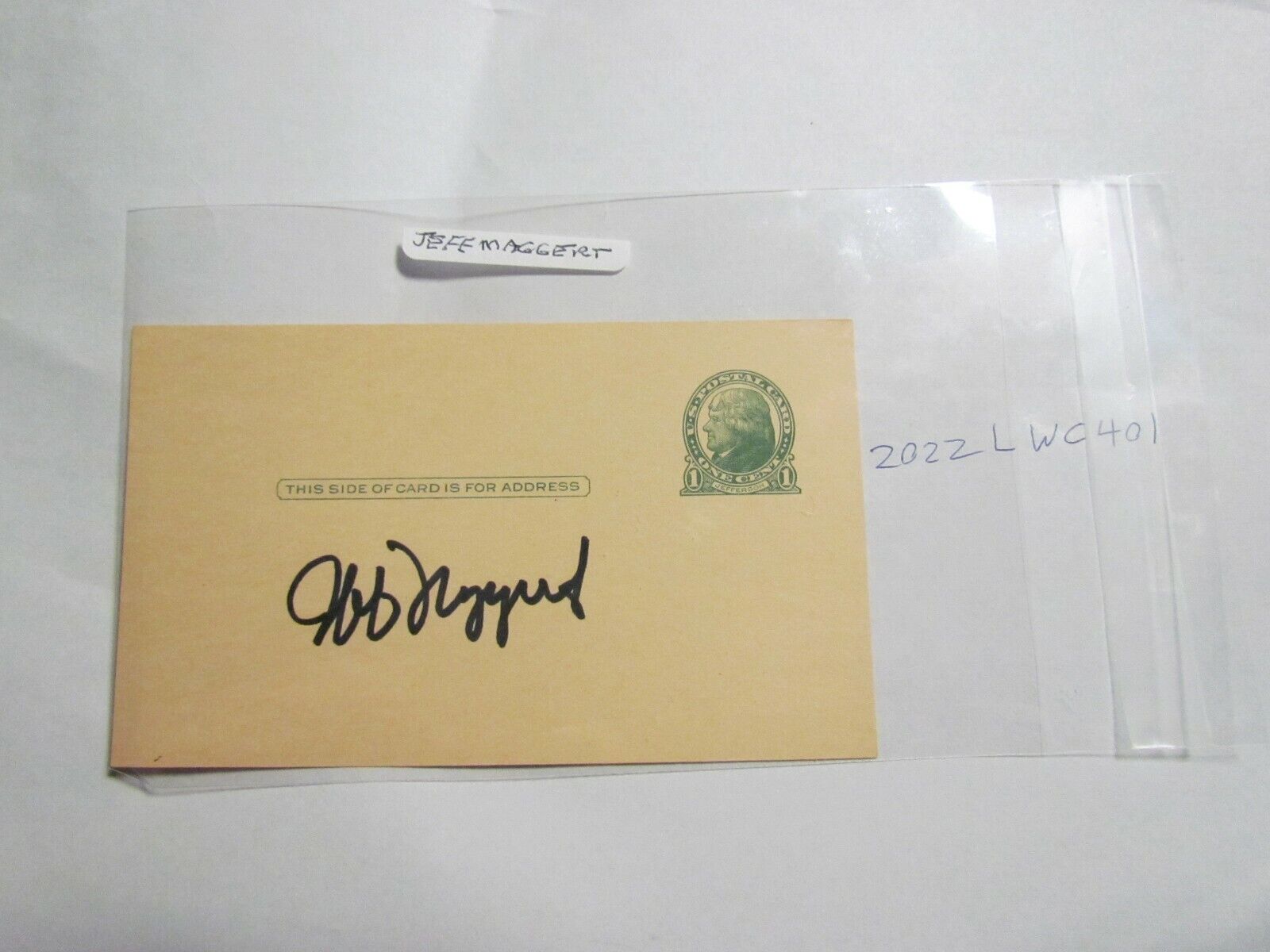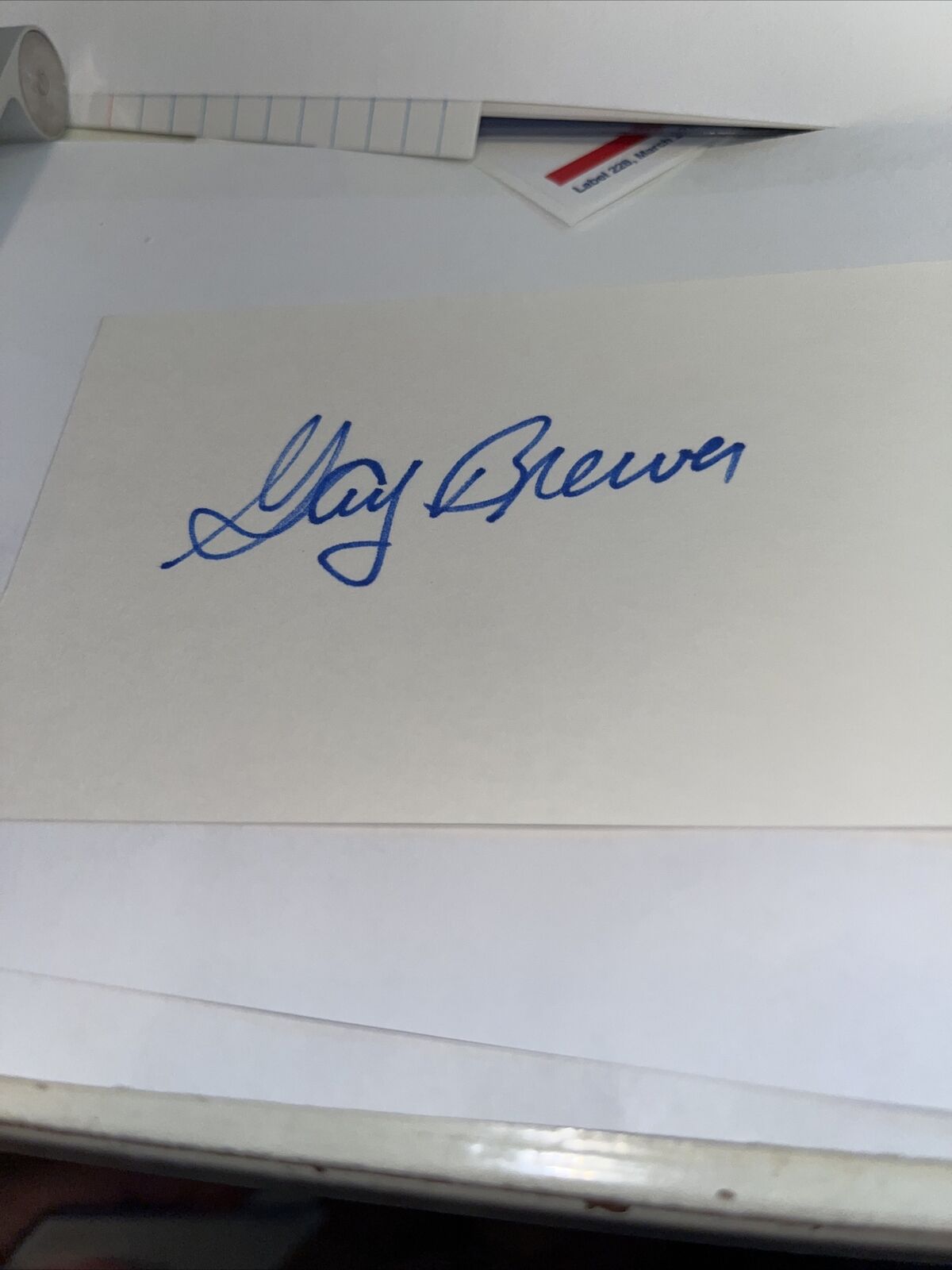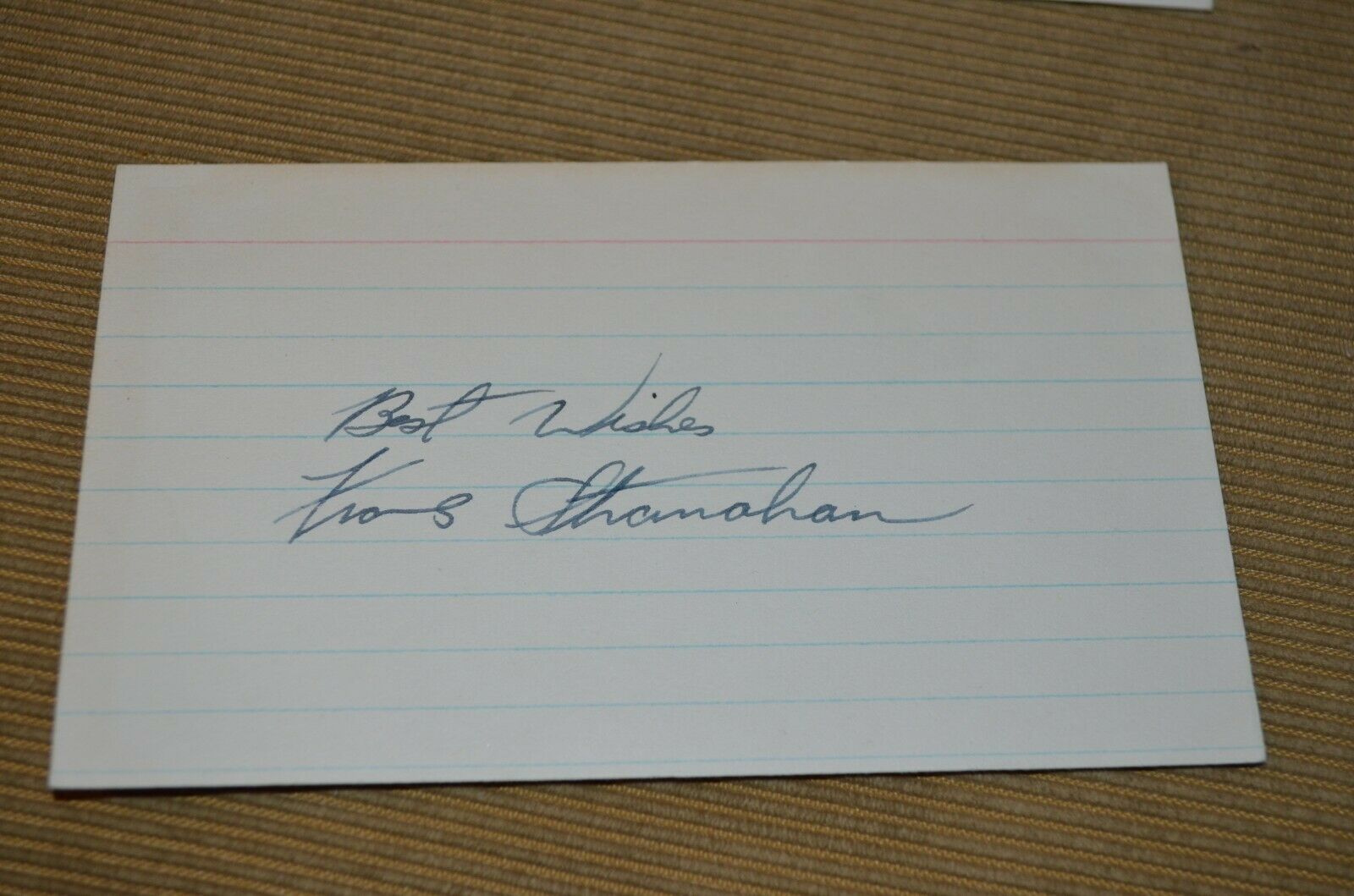-40%
"Irish Statesman" John Beresford Hand Signed Matted Display Todd Mueller COA
$ 92.39
- Description
- Size Guide
Description
Up for auction "Irish Statesman" John Beresford Hand Signed Matted Display.This item is certified authentic by Todd Mueller and comes with their Certificate of Authenticity.
ES-9062
John Beresford
(14 March 1738 – 5 November 1805)
PC
,
PC (Ire)
was an Irish statesman. Beresford was a younger son of
Sir Marcus Beresford
, who, having married Catherine, sole heiress of James Power, 3rd Earl of Tyrone, was created
Earl of Tyrone
in 1746. After the death of the earl in 1763, Beresford's mother successfully asserted her claim
suo jure
to the
barony of La Poer
. John Beresford thus inherited powerful family connections. He was educated at
Kilkenny College
,
[1]
Trinity College, Dublin
and was called to the Irish bar.
Beresford entered the
Irish House of Commons
as member for
Waterford County
in 1761. In 1768, 1783, 1789 and finally in 1798, he stood also for
Coleraine
, however choosing each time to sit for Waterford. His industry, added to the influence of his family, procured his admission to the
Privy Council of Ireland
in 1768, and his appointment as one of the commissioners of revenue two years later. In 1780 he became first commissioner of revenue, a position which gave him powerful influence in the Irish administration. He introduced some useful reforms in the machinery of taxation; and he was the author of many improvements in the architecture of the public buildings and streets of Dublin. He was first brought into conflict with
Henry Grattan
and the popular party, in 1784, by his support of the proposal that the Irish parliament in return for the removal of restrictions on Irish trade should be bound to adopt the English navigation laws. In 1786, he was sworn a member of the
Privy Council of Great Britain
, and the power which he wielded in Ireland through his numerous dependants and connections grew to be so extensive that a few years later he was spoken of as the 'King of Ireland'. He was a vehement opponent of the increasing demand for
Catholic Emancipation
; and when it became known that the
Earl FitzWilliam
was to succeed
Westmorland
as
Lord Lieutenant
in 1795 for the purpose of carrying out a conciliatory policy, Beresford expressed strong hostility to the appointment. One of Fitzwilliam's first acts was to dismiss Beresford from his employment for corruption, but with permission to retain his entire official salary for life, and with the assurance that no other member of his family would be removed. FitzWilliam had been encouraged in this course of action by
William Ponsonby
. Beresford immediately exerted all his influence with his friends in England, to whom he described himself as an injured and persecuted man; he appealed to
Pitt
, and went in person to London to lay his complaint before the English ministers. The recall of FitzWilliam, which was followed by such momentous consequences in the history of Ireland, was, as the viceroy himself believed, mainly due to Beresford's dismissal. There had been a misunderstanding on the point between Pitt and FitzWilliam. The latter, whose veracity was unimpeachable, asserted that previous to his coming to Ireland he had informed the prime minister of his intention to dismiss Beresford, and that Pitt had raised no objection. Pitt denied all recollection of any such communication, and on the contrary described the dismissal as an open breach of the most solemn promise. In a letter to
Lord Carlisle
, justifying his action, FitzWilliam mentioned that malversation had been imputed to Beresford. Beresford sent a challenge to FitzWilliam, but the combatants were interrupted on the field and FitzWilliam then made an apology. When
The Earl Camden
replaced FitzWilliam in the viceroyalty in March 1795, Beresford resumed his former position. On the eve of the
rebellion in 1798
his letters to
Lord Auckland
gave an alarming description of the condition of Ireland and he counselled strong measures of repression. When first consulted by Pitt on the question of the union Beresford appears to have disliked the idea; but he soon became reconciled to the policy and warmly supported it. After the union Beresford continued to represent
County Waterford
in the
imperial parliament
, and he remained in office till 1802, taking an active part in settling the financial relations between Ireland and Great Britain.
